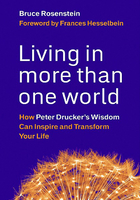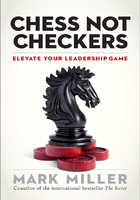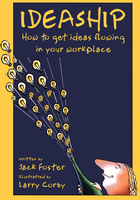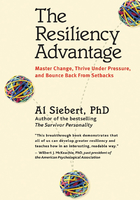How Do You Do?
HOW NICE TO MEET YOU!
My name is Carol Fleming.
I am a communication coach: I help people talk better.
Thank you for the opportunity to show you around the world of small talk.
I've got information, advice, stories, examples, surprises, and a bit of sass.
And you are . . .?
I'm guessing you are a person who would like to get a lot more comfortable with starting the kind of social small talk that leads to good conversations. You see other people who are apparently at ease and fluent and you want to be like them. You probably have not had the opportunity to learn these skills—and they are learnable—much less practice them, and you are ready to get started.
Your motivation is really important to me because for this to work we need to change some attitudes and try some new behaviors. That's challenging for a lot of people. You might be thinking right now about what's in it for you and whether it's worth it to take this challenge. Give me a few minutes and if you like what you read, then take that leap with me.
There are three important things about small talk that strike me (and that I hope will strike you):
1.Small talk is a required aspect of relationship building (social and professional) and community building.
2.It is also a despised form of communication, regarded as superficial and unworthy of an intelligent person.
3.Furthermore, no one seems to regard it as a feature of human communication that can be studied, practiced, and improved.
No wonder we all have social anxiety!
In contrast, people do understand that public speaking, in all its various forms, is both important and scary and that they can overcome much of their discomfort by getting some help—classes, consultations, whatever. Most folks know that their voices can be improved, vocabulary increased, and speeches better organized.
But small talk is like the brown water that comes out of the tap when you first turn it on. Oh, yuck! Get the empty chatter over and get on with the good stuff!
Why can't we just talk about the good stuff?
Now we're getting to the heart of it. Why can't we, indeed?
Here's a clue why: Imagine I walk up to you, a complete stranger, and say, “Weren't the Warriors great last night?” Perhaps you'll agree with me and shake my hand and we'll be great buddies right away discussing the righteousness of Steph Curry's salary. Or, more likely, you just shake your head and wonder about that crazy lady who just accosted you.
Small talk is about getting permission to engage in verbal intercourse and have a consensual conversation on a topic of mutual interest.
Small talk is the verbal warm-up for the big talk.
True that, but its stand-alone utility also goes unrecognized. Small talk is ubiquitous and assumed—so much so that we don't even recognize it as a specific form of communication that has a crucial function all its own.
In focusing our attention on these unique characteristics, I'll use a number of similes to guide your thinking. Here's my first one: Small talk is like tofu—easily digestible, readily available, and utterly bland, taking on the flavor of whatever context in which it is found, be it a Thanksgiving dinner, a professional conference, or a tractor pull. Chew on that for a while.
Here are few more points to chew on:
? There is no communication skill more important in the world than small talk.
? You love small talk. Yes, you do. There's just that one little bit with strangers that throws you off. I'll show you how to handle that.
? Social anxiety may have you in its clutches now, but you don't have to stay there. You've feared other things in your life and have overcome them. Remember swimming lessons?
This book is all about the many facets of small talk, the art form of conversation. I offer some guidelines that have helped my clients and that just might be exactly what you need to gain confidence and comfort in social situations. You'll soon meet people like Leo and Ben who were important teachers for me, and you'll find quite a few authors in the bibliography who taught me a thing or two. Or three. But remember, there are no rigid rules (usually), but there are courtesies, rituals, considerations, and the common sense that you probably already have.
So, let's start our exploration of the “brown water” (or tofu) of our communication repertoire. In Part 1: The Basics, we'll sharpen our focus on the problems you're facing with small talk, followed by some suggestions of things you can do at home that will make a huge difference in your social comfort when you are outside among people, especially strangers. Things like how to approach people and initiate small talk, followed by the skills of turning that chat into real conversation.
In Part 2: Becoming Even More Fluent, Comfortable, and Charming, we'll go over specific social applications, like how to introduce yourself and others, how to carry on small talk with more than one person, and, very importantly, how to make a graceful exit.
Yes, now the clear water is starting to flow! This book offers a paint-by-numbers approach—explicit instructions on what to do and when to do it. For some of you, it will be a simple reminder of something you already know, but if your social anxiety has been getting the best of you lately, the steps are worth reviewing. For others, especially those of you who have undergone profound displacement and churn in their social lives, the basics are exactly what you desperately want to learn. They are the tools for fitting into friendships and social groups, shaping your future and building community. And was there ever a time when we needed to talk together more?
But besides the many useful tips, there is a larger fish I wish to fry with this book.
To me, small talk is the sound of people reaching out to each other.
It's the sound of people looking for ways to find similarities, shared interests, goodwill, and the offering of friendship, not for any particular instrumental purpose, but because we need each other. We hunger for human contact. Small talk is a linguistic mechanism that allows Us (you and me) to transform Them (a stranger, a scary “other”) into someone who is a part of our tribe, into an Us. In other words, the real job of small talk is to make it easier for Them to see you as an Us and for you to feel like an Us (more on this in Chapter 1). That's a pretty important job.
Last point: Like any good party (and conversation), this book has a smorgasbord of things to sample according to your taste. So grab a plate, pick some chapters, and enjoy!













